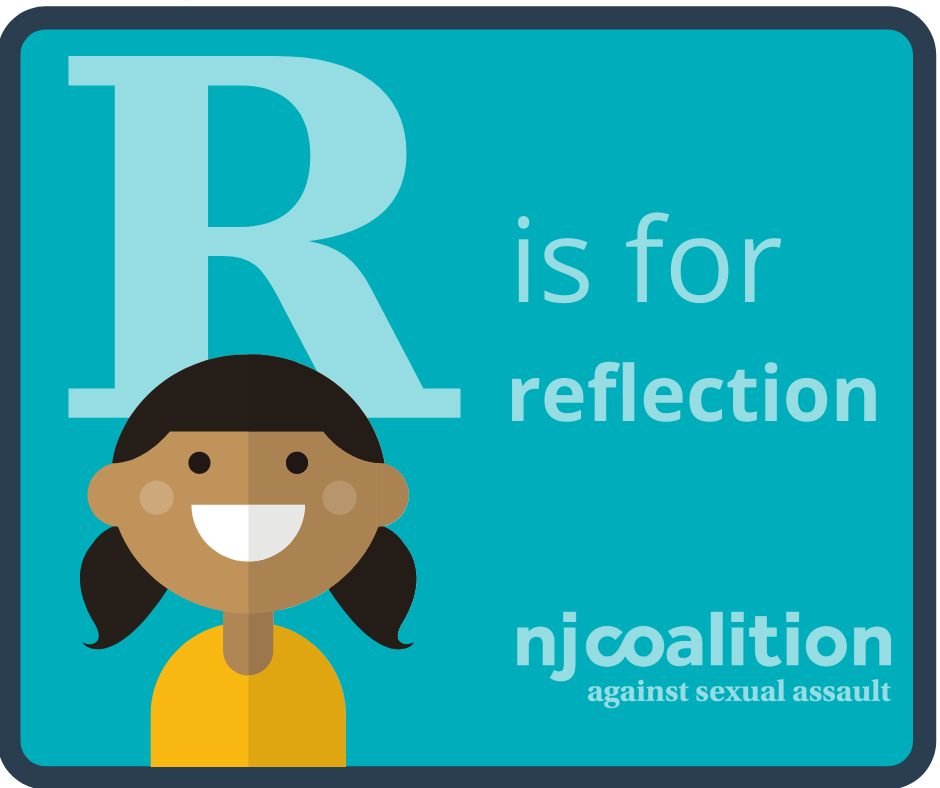
Download a one-page version of this information.
Sexual violence is 100% preventable—and everyone can play a role in that prevention.
Reflection means considering how our words and actions affect others – which can be done before we say or do something, or after the impact of our behavior is brought to our attention. When we reflect on our actions, we carefully consider the impact of our words and actions, whether intentional or unintentional; fully understand how they might make someone feel; and, if necessary, vow and make a plan to do better next time.
We’re all human and as humans, we mess up sometimes. If someone calls your actions out / in, here are some steps to take to reflect and do better next time:

Sometimes, we can have the impulse to become defensive when we are challenged on something harmful we’ve done (“But I didn’t mean it like that!” “You’re being too sensitive.” “It was only a joke!”) Before responding, take a minute to absorb what the other person is saying to you and resist the urge to react reflexively.
We are all products of society, for better or for worse. We can examine how our words have been influenced by norms that support sexual violence or misogyny. For example, telling someone, “You play like a girl!” – what is that really saying about girls and women and how we value their strength? Examining how these “everyday norms” make their way into our language is worthwhile and can help us better understand someone else’s point of view.


Having harmful words and actions brought to our attention gives us the opportunity to do better. We can make a plan to improve and be concrete in how we communicate that to the person/people who were harmed – “I’m sorry that I said that. You’re right, it was wrong. I wasn’t being thoughtful. In the future, I will…” Having the opportunity to pause, reflect, and understand the full impact of what we said or did is a building block for doing better in the future.